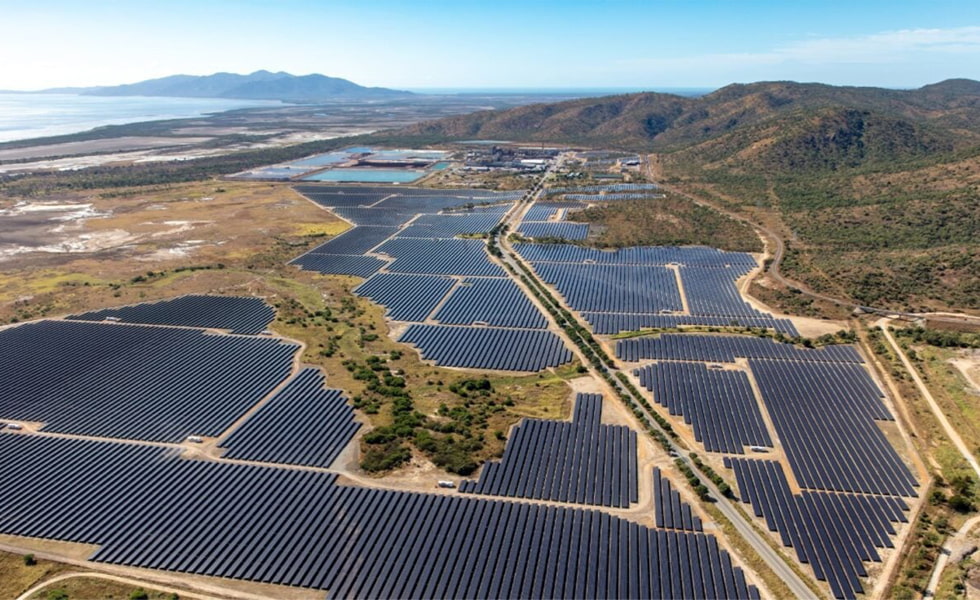
Ante la preocupación por la ciberseguridad, miembros del Parlamento Europeo han instado a la Comisión Europea a restringir el acceso de los fabricantes chinos de inversores solares a la infraestructura energética de la UE.
En una carta abierta dirigida a la vicepresidenta ejecutiva de la Comisión Europea, Henna Virkkunen, y al comisario de Energía y Vivienda, Dan Jørgensen, 30 eurodiputados pidieron "medidas inmediatas y vinculantes" para prevenir situaciones de "alto riesgo". inversor solar impedir que los proveedores accedan a la infraestructura energética crítica de Europa.
La carta, filtrada por Politico, afirma que las agencias de ciberseguridad de Lituania, la República Checa y Alemania han tomado medidas, ya sea prohibiendo o emitiendo advertencias sobre los riesgos potenciales que inversores fotovoltaicos de fabricación china representan un riesgo para la red eléctrica europea. Estos riesgos se derivan principalmente del acceso remoto de las empresas a los inversores a través de la nube o del pirateo de los servidores en la nube de los proveedores.
Los firmantes instaron a la Comisión Europea a acelerar su proceso de evaluación de riesgos y a presentar "propuestas concretas" para restringir la entrada al mercado de proveedores de "alto riesgo", al tiempo que apoyan a los fabricantes europeos de inversores.
La carta afirma: “Para cuando finalice la investigación en curso y se presente la legislación pertinente, podrían haber transcurrido dos años. Para entonces, Europa podría haber perdido ya a sus últimos fabricantes de inversores fotovoltaicos. Si bien las empresas occidentales aún pueden satisfacer la demanda europea, su cuota de mercado en Europa está disminuyendo drásticamente. Si una de estas empresas quiebra debido a la competencia desleal de China, la UE podría perder pronto todas las alternativas no chinas”. El mercado europeo de inversores ha estado dominado recientemente por proveedores chinos; datos de la plataforma mayorista de energía fotovoltaica sun.store muestran que Huawei, Sungrow Power, Goodwe y Deye se encuentran entre los cinco principales proveedores de inversores de cadena e híbridos. La carta abierta indica que solo Huawei suministró 115 GW de inversores a Europa en 2023, y el 80 % de todos los nuevos inversores. inversor fotovoltaico La capacidad en 2024 provendrá de China. Los precios de los módulos europeos se estabilizan en niveles bajos: Jinko asciende al primer puesto, seguida de JA Solar, LONGi y Trina Solar.
Mientras tanto, ante la creciente competencia de China y la desaceleración del mercado solar residencial europeo, los fabricantes de inversores no chinos han tenido dificultades para alcanzar la rentabilidad. Anteriormente, la asociación industrial SolarPower Europe solicitó un mayor apoyo a los fabricantes europeos de inversores, como SMA Solar y Fronius, y restricciones de ciberseguridad más estrictas para la infraestructura de inversores digitales.
El Consejo Europeo de Fabricación Solar (ESMC) expresó su "pleno apoyo" a la carta.
La carta concluía afirmando: «Si la UE no toma medidas inmediatas y vinculantes, Europa no solo se enfrentará a riesgos para la seguridad energética, sino que también pondrá en peligro la viabilidad de todos los fabricantes europeos que aún operan en el sector». En cuanto a la ciberseguridad solar, Erika Langerova, directora de investigación en ciberseguridad del UCEEB, un centro de investigación de la Universidad Técnica Checa de Praga, declaró: «Está bien redactada y, si se implementa correctamente, debería ser eficaz. Creo que Bruselas ha aprendido de los errores cometidos al implementar el conjunto de herramientas 5G anteriormente».
El conjunto de herramientas 5G introduce medidas específicas de ciberseguridad para que el sector de las telecomunicaciones gestione la infraestructura 5G de la UE. Cabe destacar que estas medidas permiten a los países restringir o prohibir la entrada de ciertas empresas al sector, de forma similar a la restricción impuesta por el Reino Unido a Huawei por motivos de ciberseguridad, pero sin especificar ninguna empresa en particular.
A pesar de la rápida adopción de la tecnología en Europa, la industria solar aún no se ha enfrentado a restricciones similares. El mes pasado, Huawei recuperó su membresía en SolarPower Europe tras disputas legales.
Un informe de junio de la empresa de ciberseguridad Forescout reveló que la industria solar europea se enfrenta a mayores riesgos de ciberseguridad que cualquier otra región del mundo. Esto se debe a que muchos inversores tienen acceso externo a internet, a menudo a través de servidores en la nube gestionados por empresas fuera de la UE. Los ciberdelincuentes que accedan a estos servidores podrían dañar o inutilizar inversores individuales, lo que podría provocar apagones localizados o a nivel nacional, o daños a infraestructuras críticas.
Las restricciones a nivel de la UE tendrían un impacto significativo en la industria. «Creo que habrá intensos debates, mucha presión y tentativas de sobornar a los políticos para que frenen estas iniciativas», declaró Langerova a PV Tech. «La UE es un mercado enorme para las empresas chinas, y no lo cederán fácilmente».
